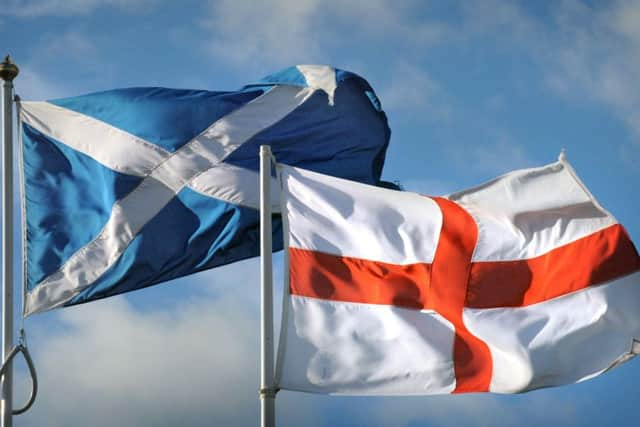Edinburgh council leader’s warning about anti-English extremism should make us pause for thought – Brian Ferguson
There was something depressingly inevitable about the social media pile-on which engulfed Edinburgh City Council leader Adam McVey after he ventured into what must have been uncomfortable territory last week.
Addressing the annual tourism summit in the city, there was more than enough for him to focus on in his half-hour keynote speech, given the challenges facing the industry and the city’s festivals. After all, debates have been raging for years on everything from his calls to secure the power to introduce the UK’s first tourist tax, to the ability of the city centre to cope with major summer and winter events, contested hotel developments, and to what extent it is suffering from overtourism.


Advertisement
Hide AdAdvertisement
Hide AdMr McVey has been a regular contributor to the public discourse on all of the above and he had plenty more to say at the Assembly Rooms. But, in a carefully worded passage, he also tackled what he described as “ugliness” and “extremism”. Citing anti-English and anti-Welsh attacks on individuals, as well as how he had come under fire for being brought up in Paisley, Mr McVey drew clear comparisons with the Brexit debates, and railed against any suggestion of “two tiers of Edinburghers”.
He was careful to insist he was not trying to “put people back into their box”, adding: “I am not painting those raising legitimate concerns with the minority extremism of people who hold those views.” But he stated: “When you live in the city, you are a resident and you are a citizen of this city. Whether you are from Europe, or anywhere else, you’re welcome in this city.”
Speaking a day before Britain left the European Union, it spoke volumes that he felt motivated to say this. Yet, within minutes of his words being reported on The Scotsman website, he was under fire, notably from some of the individuals and organisations who have been amongst his harshest critics, asking him to “quantify” the extent of the abuse, accusing him of “disgraceful smears” and questioning whether anything untoward had happened.
It was perhaps the ultimate irony for Mr McVey – who pointed out that some of the abuse had come from “prominent commentators who should know better” – that he faced suggestions of fabrication after a speech in which he had urged the tourism industry to tackle the growth of fake news in the tourism and events sectors. If he thought his speech may have bridged some of the clear divides he was badly mistaken. But that does not mean he was not entitled to speak out, particularly given the nationality of many of those at the helm of city tourism bodies and event organisations.
A key challenge now is whether there is anyone willing and able to get those on opposite sides of the debate around the table and actually speaking to each other for the first time.
In the meantime, the onus is surely on everyone, whether passionate solo campaigners or leaders of organisations, to reflect on the tone and content of what they are saying in person or posting online before Edinburgh heads into an even darker place.
